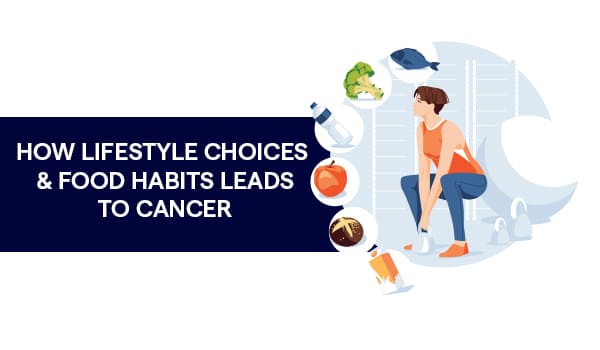
While some risk factors for cancer, such as age and family history, are beyond our control, many lifestyle choices can lower our risk of developing this deadly disease. This is where medical oncology hospital in India comes in - a field of medicine specializing in the diagnosis and treatment of cancer using chemotherapy, and radiation.
An estimated 6-7 lakh deaths in India are caused by cancer in a year. This data is close to the mortality burden seen in high-income countries. About a lakh young adults aged 20-39 years are diagnosed with cancer each year. About 5% percent of all cancers are diagnosed in this age range. Cancer is the 4th leading cause of death in this age group.
Most Common Cancer In Men
Most Common Cancer In Women
Most Common Cancer In Children
Age and risk in youth:
Age 15-19: Hodgkin lymphoma, thyroid cancer, brain and central nervous system tumors.
Ages 20 - 29: Testicular cancer, thyroid cancer, breast cancer, melanoma.
Ages 30 - 39: Breast cancer, thyroid cancer, testicular cancer, testicular cancer, cervical cancer.
One of the most important lifestyle choices that increase the risk of cancer in youth are as follows:
⦁ Smoking cigarettes, chewing tobacco, & exposure to secondhand smoke are major risk factors for various cancers, including lung, mouth, and throat cancers.
⦁ Excessive alcohol consumption is directly linked with an increased risk of cancers like Liver, Mouth, Throat, and Breast cancer.
⦁ Engaging in regular physical activity like running and swimming is known to strengthen the immune system. Conversely, inadequate physical activity can lead to a weakened immune response across age groups.
⦁ Physical inactivity is associated with obesity( increased body fat mass). This excess adipose tissue disrupts the body's hormonal balance and can lead to chronic inflammation. Both hormonal imbalances and chronic inflammation are implicated in the pathogenesis of various cancers.
⦁ Excessive exposure to UV radiation raises the likelihood of developing skin cancer, a particular concern in India's sunny climate. It is important to take steps to protect yourself from UV radiation, especially if you spend a lot of time outdoors. This can include wearing clothing, such as long-sleeved shirts & wide-brimmed hats, using sunscreen with a high SPF rating, and seeking shade during the hottest part of the day.
The most important food habits that increase the risk of cancer in youth are as follows:
The foods we eat play a major role in determining our overall health and well-being. According to the latest study, consuming a diet rich in processed foods and meat can raise the risk of colorectal cancer. In contrast, a diet high in sugar & unhealthy fats may increase the likelihood of developing breast cancer. In addition to the foods we eat, how we eat can also affect our risk of developing cancer. Consuming excessive food in one sitting, referred to as binge eating, can elevate the risk of esophageal cancer. In contrast, the consumption of spicy foods can heighten the risk of stomach cancer.
⦁ Packaged snacks and drinks often contain high amounts of added sugars. Excessive sugar intake can result in obesity, which is a major risk factor for several cancers, including colorectal, breast, and pancreatic cancer.
⦁ The focus on building muscle through protein supplements and high-protein diets, especially among young men, can lead to an unbalanced intake. While protein is essential, overconsumption can put a strain on the kidneys and potentially increase cancer risk factors.
⦁ Processed meats like sausages, hot dogs, and bacon contain nitrates & nitrites, which contribute to cancer formation. The growing popularity of fast food items like burgers, pizzas, and processed snacks such as chips and cookies is a worrying trend.
⦁ Diets high in fats from fried foods, baked goods, & processed snacks increase inflammation and raise cancer risk factors. Traditional Indian cooking often relies on clarified butter (ghee) for flavor and texture, but it's essential to practice moderation due to its high saturated fat content.
⦁ Excessive intake of sugary drinks and refined carbohydrates like white bread and pastries can lead to obesity, a significant risk factor for several cancers. Increasing consumption of these high-calorie, low-nutrient items is a concern.
⦁ Agriculture, air pollution from vehicles and industries, and radiation from electronic devices can increase the risk of developing cancer. Young people must be aware of their surroundings and take proactive steps to limit their exposure to harmful chemicals, as these substances have long-term health implications and entail an increased risk of cancer.
It's also important to know what preventive measures you can take to reduce the risk of developing cancer. Here are some effective ways you can take to prevent cancer:
⦁ Eat a healthy and proper diet: A diet rich in fruits, vegetables, whole grains, & lean proteins can help reduce your risk of cancer.
⦁ Exercise daily: Regular physical activity can help strengthen your immune system and overall health & reduce the risk of developing types of cancer. Aim for at least 30 minutes of exercise most days of the week.
⦁ Get vaccinated: Vaccines help protect and fight against all types of cancer, such as the HPV vaccine for cervical cancer & the hepatitis B vaccine for liver cancer.
⦁ Stay up to date on cancer screenings: Regular cancer screenings can also help in detecting the cancer early when it's most treatable.
If you or someone you know is concerned about cancer risk factors and wants to take preventive measures, reach out to the Sir Ganga Ram Hospital Oncology department and book an appointment for regular cancer screening.